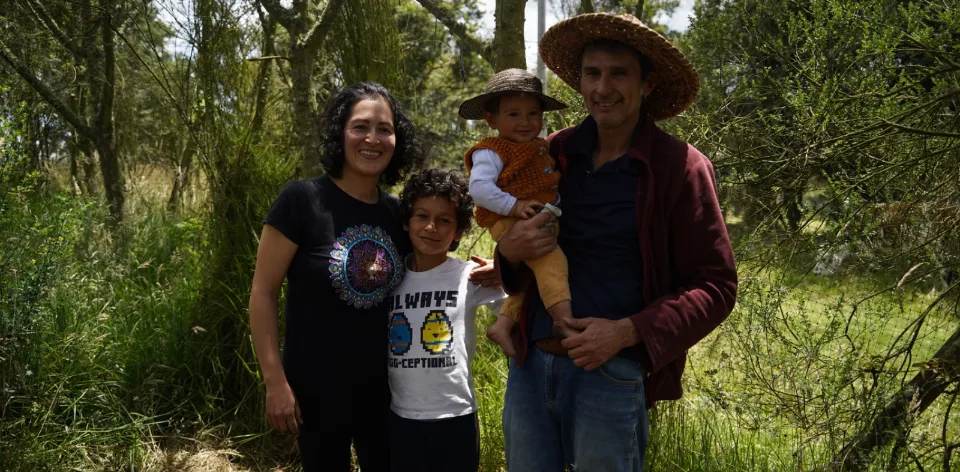 5/9/2024
5/9/2024
UPRA Participates in the Formulation of Agroecology Public Policy

Bogotá D. C., (@Minagricultura, @UPRAColombia, @claudialili76). During the Peasant Summit held on August 29 and 30 in Fusagasugá, Cundinamarca, the Ministries of Agriculture and Rural Development, Environment, and Culture, along with various entities and associations, highlighted the importance of agroecology as an approach that integrates agriculture with nature conservation. In this context, the Unit for Rural Agricultural Planning (UPRA) has played a key role in formulating the Agroecology Public Policy, a document that will be presented by the "Government of Change" in September.
Jerónimo Pulido, leader of the process at the Ministry of Agriculture and Rural Development, emphasized the participatory nature of the initiative: "This process began more than a year ago with a methodological path agreed upon with the national agroecology movement. We have held several regional, territorial meetings and working groups with diverse actors, allowing for a truly participatory construction. This year, we focused on systematizing and have delivered the draft document to all agroecology organizations across the country."
UPRA’s technical team has been instrumental in shaping this policy, as well as in other initiatives aimed at promoting an agroecological transition in Colombia. These efforts, which will benefit all Colombians, recognize the contributions of Peasant, Family, Ethnic, and Community Agriculture.
Juliana Sabogal, from UPRA’s Directorate of Property and Land Market Planning, detailed the agency’s specific contributions: "Since last year, we have supported the formulation of the agroecology public policy in four key areas: the construction of policy guidelines, the development of the National Agroecology Program, technical support for the Land Planning Tool for Agroecological Transition (IPPTA), developed by the Rural Development Agency (ADR), and assisting in the creation of the National Biofactories Survey."
Lina Domínguez, a representative from the Nariño-based "Red de Guardianes de Semillas de Vida," shared her perspective during the Agroecology plenary: "Agroecology is a way of life rooted in the love for preserving life. It means planting without agrochemicals, consuming consciously, and avoiding anything that harms Mother Earth, ourselves, or the community. If Mother Earth gives us healthy food, it is our duty to give her the same; if she gives us pure water, we must return pure water."

